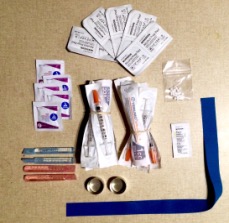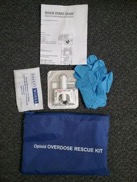This summer I had the opportunity to intern at Prevention Point Philadelphia. Before beginning this internship, I had very little knowledge of the organization, or the services they provided. The most I knew of Prevention Point was that they offered harm reduction services to those affected by the opioid epidemic in Philadelphia communities. I also knew it was located in Kensington, the neighborhood known as the center for Philadelphia’s drug market. However, I wasn’t even aware Philadelphia was one of the major cities affected by the opioid crisis. A conversation I had with a neighbor back home in Delaware illustrates how vague my understanding of my summer plans really was. When they stated, “So it’s basically a safe-place for individuals to use drugs,” I replied, “Yeah, basically,” and went about my day. To say I was ignorant would be an understatement.
Over the past 10 weeks, I’ve gotten to learn the actual types of services Prevention Point provides, and the history behind this organization. Prevention Point addresses public health and social services efforts that aim to provide harm reduction associated with drug use. This organization began as a syringe exchange program, the exchange of used needles for clean ones, in the 1990s to address the HIV/AIDS outbreak among drug users. Since then, Prevention Point has expanded its program to offer a variety of medical and non-medical services to individuals. Along with the exchange program, these services include:
- Providing warm meals — sit-down meals and sandwiches
- Mail services
- Overdose reversal training and distributing free reversal kits
- Legal aid
- Case management
- Stabilized Treatment and Engagement Program (STEP) — Provides medically assisted treatment (MAT) for individuals using opioids
- Education services
- Emergency Packs — Harm-reduction needle packs and supplies
- Street-Side Health Projects — Provides free medical care through mobile clinics and in-building clinics, and wound care
- Clinica Bienestar — Specifically works with HIV treatment primarily for the Latino/x populations
- Outreach and Housing — Linkage to housing services and respite centers, such as the Drop-In Center, for individuals to relax
- HIV/HCV Testing — also provides referrals to HIV and HCV treatments
- CRAFT — Program that links individuals to drug treatment
Needless to say, Prevention Point offers a lot, and it is definitely not a “safe space for users to use drugs.” Furthermore, the type of services that PPP provides is not limited to those affected by the opioid crisis. It is a safe place for any individual, no matter their race, gender, background, or socioeconomic status, to receive the aid they need. I’ve had the opportunity to take part in most of these services, and it has been the most rewarding experience of my life. Growing up in a sheltered environment, these past couple of months have really given me a different perspective on issues that I had a very biased view of. The staff at Prevention Point are the most kind-hearted and accepting people I have ever encountered, and the biggest thing I have learned from them is to not enter new environments with negative preconceived ideas about individuals, or their backgrounds, and to treat all people like human beings and give them the dignity they deserve.


